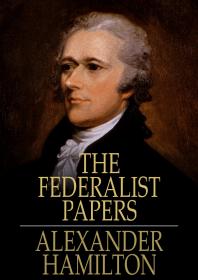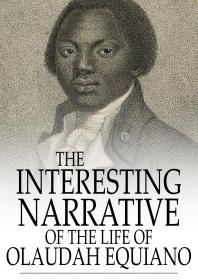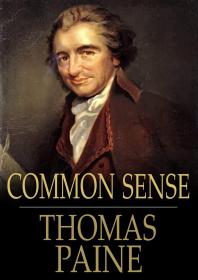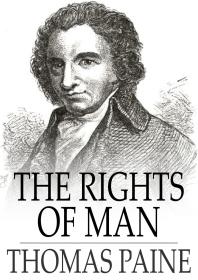 Go to A-Z Databases: Books & eBooks to search for more eBooks. Must be on campus or login with your COM account for off campus access.
Go to A-Z Databases: Books & eBooks to search for more eBooks. Must be on campus or login with your COM account for off campus access.
Want more on finding books or eBooks? Try our How to Use Books & eBooks guides.
-
 Autobiography of Benjamin Franklin, 1706-1757
The Autobiography of Benjamin Franklin was written by Benjamin Franklin from 1771 to 1790; however, Franklin himself appears to have called the work his Memoirs. Although it had a torturous publication history after Franklin's death, this work has become one of the most famous and influential examples of autobiography ever written.
Autobiography of Benjamin Franklin, 1706-1757
The Autobiography of Benjamin Franklin was written by Benjamin Franklin from 1771 to 1790; however, Franklin himself appears to have called the work his Memoirs. Although it had a torturous publication history after Franklin's death, this work has become one of the most famous and influential examples of autobiography ever written.
-
 I, the Song : Classical Poetry of Native North Americans
I, the Song is an introduction to the rich and complex classical North American poetry that grew out of and reflects Indian life before the European invasion. No generalization can hold true for all the classical poems of North American Indians. They spring from thirty thousand years of experience, five hundred languages and dialects, and ten linguistic groups and general cultures. But the poems from these different cultures and languages belong to poetry unified by similar experiences and shared continent. Built on early transcriptions of Native American "songs" and arranged by subject, these poems are informed by additional context that enables readers to appreciate more fully their imagery, their cultural basis, and the moment that produced them. They let us look at our continent through the eyes of a wide range of people: poets, hunters, farmers, holy men and women, and children. This poetry achieved its vividness, clarity, and intense emotional powers partly because the singers made their poems for active use as well as beauty, and also because they made them for singing or chanting rather than isolated reading. Most striking, classical North American Indian poetry brings us flashes of timeless vision and absolute perception: a gull's wing red over the dawn; snow-capped peaks in the moonlight; a death song. Flowing beneath them is a powerful current: the urge to achieve a selfless attention to the universe and a determination to see and delight in the universe on its own terms.
I, the Song : Classical Poetry of Native North Americans
I, the Song is an introduction to the rich and complex classical North American poetry that grew out of and reflects Indian life before the European invasion. No generalization can hold true for all the classical poems of North American Indians. They spring from thirty thousand years of experience, five hundred languages and dialects, and ten linguistic groups and general cultures. But the poems from these different cultures and languages belong to poetry unified by similar experiences and shared continent. Built on early transcriptions of Native American "songs" and arranged by subject, these poems are informed by additional context that enables readers to appreciate more fully their imagery, their cultural basis, and the moment that produced them. They let us look at our continent through the eyes of a wide range of people: poets, hunters, farmers, holy men and women, and children. This poetry achieved its vividness, clarity, and intense emotional powers partly because the singers made their poems for active use as well as beauty, and also because they made them for singing or chanting rather than isolated reading. Most striking, classical North American Indian poetry brings us flashes of timeless vision and absolute perception: a gull's wing red over the dawn; snow-capped peaks in the moonlight; a death song. Flowing beneath them is a powerful current: the urge to achieve a selfless attention to the universe and a determination to see and delight in the universe on its own terms.
-
 Reading the Voice : Native American Oral Poetry on the Page
"This is a book about poetry: about its sacred underpinnings, its broad presence in everyday life, and its necessity to the human community. Reading the Voice examines poetry's abiding importance among Native Americans from ancient times to the present. It also seeks connections between an ancient tribal way of making and diffusing poetry and more recent print-oriented or electronic means." "Drawing on years of experience with Seneca and Navajo singers and storytellers, Paul Zoibrod offers an introductory framework for appreciating what can be called America's first literature and for reevaluating the Western literary heritage. He states, "I consider this work a tentative first step in reconciling mainstream America with the deep poetic roots of an unwritten aboriginal past, and perhaps even with the deeper European roots of its own poetic traditions." To do so effectively, however, readers must first reexamine assumptions about what poetry and literature really are." "Those who come to Native American "literature" in print must do so conscious of the dynamic sounds of speech and song by "reading the voice," instead of merely looking at a silent sheet of paper full of alphabetical symbols. By doing otherwise we stand to miss much that is essential to the verbal art of indigenous peoples whom print cultures approach from an alien perspective."--BOOK JACKET.Title Summary field provided by Blackwell North America, Inc. All Rights Reserved
Reading the Voice : Native American Oral Poetry on the Page
"This is a book about poetry: about its sacred underpinnings, its broad presence in everyday life, and its necessity to the human community. Reading the Voice examines poetry's abiding importance among Native Americans from ancient times to the present. It also seeks connections between an ancient tribal way of making and diffusing poetry and more recent print-oriented or electronic means." "Drawing on years of experience with Seneca and Navajo singers and storytellers, Paul Zoibrod offers an introductory framework for appreciating what can be called America's first literature and for reevaluating the Western literary heritage. He states, "I consider this work a tentative first step in reconciling mainstream America with the deep poetic roots of an unwritten aboriginal past, and perhaps even with the deeper European roots of its own poetic traditions." To do so effectively, however, readers must first reexamine assumptions about what poetry and literature really are." "Those who come to Native American "literature" in print must do so conscious of the dynamic sounds of speech and song by "reading the voice," instead of merely looking at a silent sheet of paper full of alphabetical symbols. By doing otherwise we stand to miss much that is essential to the verbal art of indigenous peoples whom print cultures approach from an alien perspective."--BOOK JACKET.Title Summary field provided by Blackwell North America, Inc. All Rights Reserved
-
 Unchained Voices: An Anthology of Black Authors in the English-Speaking World of the Eighteenth Century
In Unchained Voices, Vincent Carretta has assembled the most comprehensive anthology ever published of writings by eighteenth-century people of African descent, enabling many of these authors to be heard for the first time in two centuries. Their writings reflect the surprisingly diverse experiences of blacks on both sides of the Atlantic-America, Britain, the West Indies, and Africa-between 1760 and 1798. Letters, poems, captivity narratives, petitions, criminal autobiographies, economic treatises, travel accounts, and antislavery arguments were produced during a time of various and changing political and religious loyalties. Although the theme of liberation from physical or spiritual captivity runs throughout the collection, freedom also clearly led to hardship and disappointment for a number of these authors. Briton Hammon, James Albert Ukawsaw Gronniosaw, John Marrant, Ignatius Sancho, Ottobah Cugoano, and Olaudah Equiano told their stories as Afro-Britons who recognized the sovereignty of George III; Johnson Green, Belinda, Benjamin Banneker, and Venture Smith spoke and wrote as African Americans n the United States; Phillis Wheatley, initially an Afro-British poet, later chose an African American identity; Francis Williams and George Liele wrote in Jamaica; David George and Boston King, having served with the British forces in the American Revolution and later lived in Canada, composed their narratives as British subjects in the newly established settlement in Sierra Leone, Africa. In his introduction, Carretta reconstructs the historical and cultural context of the works, emphasizing the constraints of the eighteenth-century genres under which these authors wrote. The texts and annotations are based on extensive research in both published and manuscript holdings of archives in the United States and the United Kingdom. Appropriate for undergraduates as well as for scholars, Unchained Voices gives a clear sense of the major literary and cultural issues at the heart of African literature written in English.
Unchained Voices: An Anthology of Black Authors in the English-Speaking World of the Eighteenth Century
In Unchained Voices, Vincent Carretta has assembled the most comprehensive anthology ever published of writings by eighteenth-century people of African descent, enabling many of these authors to be heard for the first time in two centuries. Their writings reflect the surprisingly diverse experiences of blacks on both sides of the Atlantic-America, Britain, the West Indies, and Africa-between 1760 and 1798. Letters, poems, captivity narratives, petitions, criminal autobiographies, economic treatises, travel accounts, and antislavery arguments were produced during a time of various and changing political and religious loyalties. Although the theme of liberation from physical or spiritual captivity runs throughout the collection, freedom also clearly led to hardship and disappointment for a number of these authors. Briton Hammon, James Albert Ukawsaw Gronniosaw, John Marrant, Ignatius Sancho, Ottobah Cugoano, and Olaudah Equiano told their stories as Afro-Britons who recognized the sovereignty of George III; Johnson Green, Belinda, Benjamin Banneker, and Venture Smith spoke and wrote as African Americans n the United States; Phillis Wheatley, initially an Afro-British poet, later chose an African American identity; Francis Williams and George Liele wrote in Jamaica; David George and Boston King, having served with the British forces in the American Revolution and later lived in Canada, composed their narratives as British subjects in the newly established settlement in Sierra Leone, Africa. In his introduction, Carretta reconstructs the historical and cultural context of the works, emphasizing the constraints of the eighteenth-century genres under which these authors wrote. The texts and annotations are based on extensive research in both published and manuscript holdings of archives in the United States and the United Kingdom. Appropriate for undergraduates as well as for scholars, Unchained Voices gives a clear sense of the major literary and cultural issues at the heart of African literature written in English.
-
 The Federalist Papers
by
Alexander Hamilton; John Jay; James Madison
Perhaps the most essential distillation of the Founders' vision of America, The Federalist Papers consist of a series of 85 essays in favor of the ratification of the U.S. Constitution. Attributed to Alexander Hamilton, John Jay, and James Madison, the essays tackle an array of topics that are just as relevant today as they were more than 200 years ago, including human rights, republican governance, the proper scope and jurisdiction of a federal government, and much more.
The Federalist Papers
by
Alexander Hamilton; John Jay; James Madison
Perhaps the most essential distillation of the Founders' vision of America, The Federalist Papers consist of a series of 85 essays in favor of the ratification of the U.S. Constitution. Attributed to Alexander Hamilton, John Jay, and James Madison, the essays tackle an array of topics that are just as relevant today as they were more than 200 years ago, including human rights, republican governance, the proper scope and jurisdiction of a federal government, and much more.
-
-
 The Interesting Narrative of the Life of Olaudah Equiano
by
Olaudah Equiano
The Interesting Narrative of the Life of Olaudah Equiano, written in 1789, details its writer's life in slavery, his time spent serving on galleys, the eventual attainment of his own freedom and later success in business. Including a look at how slavery stood in West Africa, the book received favorable reviews and was one of the first slave narratives to be read widely.
The Interesting Narrative of the Life of Olaudah Equiano
by
Olaudah Equiano
The Interesting Narrative of the Life of Olaudah Equiano, written in 1789, details its writer's life in slavery, his time spent serving on galleys, the eventual attainment of his own freedom and later success in business. Including a look at how slavery stood in West Africa, the book received favorable reviews and was one of the first slave narratives to be read widely.
-
 The Poems of Phillis Wheatley : With Letters and a Memoir
by
Phillis Wheatley
Born in Africa in 1753, Phillis Wheatley was kidnapped at the age of seven and sold into slavery. At nineteen, she became the first black American poet to publish a book, Poems on Various Subjects: Religious and Moral, on which this volume is based. Wheatley's poetry created a sensation throughout the English-speaking world, and the young poet read her work in aristocratic drawing rooms on both sides of the Atlantic. The London Chronicle went so far as to declare her "perhaps one of the greatest instances of pure, unassisted genius that the world ever produced." Wheatley's elegies and odes offer fascinating glimpses into the origins of African-American literary traditions. Most of the poems express the effects of her religious and classical New England education, consisting of elegies for the departed and odes to Christian salvation. This edition of Wheatley's historic works includes letters and a biographical note written by one of the poet's descendants. Includes a selection from the Common Core State Standards Initiative: "On Being Brought from Africa to America."
The Poems of Phillis Wheatley : With Letters and a Memoir
by
Phillis Wheatley
Born in Africa in 1753, Phillis Wheatley was kidnapped at the age of seven and sold into slavery. At nineteen, she became the first black American poet to publish a book, Poems on Various Subjects: Religious and Moral, on which this volume is based. Wheatley's poetry created a sensation throughout the English-speaking world, and the young poet read her work in aristocratic drawing rooms on both sides of the Atlantic. The London Chronicle went so far as to declare her "perhaps one of the greatest instances of pure, unassisted genius that the world ever produced." Wheatley's elegies and odes offer fascinating glimpses into the origins of African-American literary traditions. Most of the poems express the effects of her religious and classical New England education, consisting of elegies for the departed and odes to Christian salvation. This edition of Wheatley's historic works includes letters and a biographical note written by one of the poet's descendants. Includes a selection from the Common Core State Standards Initiative: "On Being Brought from Africa to America."
-
 Common Sense
by
Thomas Paine
When Thomas Paine first anonymously published his series of pamphlets titles Common Sense they became an overnight success. First released in 1776 at the height of the American Revolution the treatise denounced British rule and is thought to have been so popular as to have influenced the path of the revolution itself. In the words of Historian Gordon S. Wood Common Sense was, "the most incendiary and popular pamphlet of the entire revolutionary era."
Common Sense
by
Thomas Paine
When Thomas Paine first anonymously published his series of pamphlets titles Common Sense they became an overnight success. First released in 1776 at the height of the American Revolution the treatise denounced British rule and is thought to have been so popular as to have influenced the path of the revolution itself. In the words of Historian Gordon S. Wood Common Sense was, "the most incendiary and popular pamphlet of the entire revolutionary era."
-
 The Rights of Man
by
Thomas Paine
Written in a fit of pique brought about by Edmund Burke's blistering attack of the French Revolution, Paine's The Rights of Man has come to be regarded as one of the most important works in the realm of Western political philosophy. In it, Paine contends that some rights that are granted through natural law, rather than by governments or constitutions. A must-read for those interested in politics, philosophy, and the intersection of the two.
The Rights of Man
by
Thomas Paine
Written in a fit of pique brought about by Edmund Burke's blistering attack of the French Revolution, Paine's The Rights of Man has come to be regarded as one of the most important works in the realm of Western political philosophy. In it, Paine contends that some rights that are granted through natural law, rather than by governments or constitutions. A must-read for those interested in politics, philosophy, and the intersection of the two.
 Go to A-Z Databases: Books & eBooks to search for more eBooks. Must be on campus or login with your COM account for off campus access.
Go to A-Z Databases: Books & eBooks to search for more eBooks. Must be on campus or login with your COM account for off campus access. The Federalist Papers
by
Alexander Hamilton; John Jay; James Madison
Perhaps the most essential distillation of the Founders' vision of America, The Federalist Papers consist of a series of 85 essays in favor of the ratification of the U.S. Constitution. Attributed to Alexander Hamilton, John Jay, and James Madison, the essays tackle an array of topics that are just as relevant today as they were more than 200 years ago, including human rights, republican governance, the proper scope and jurisdiction of a federal government, and much more.
The Federalist Papers
by
Alexander Hamilton; John Jay; James Madison
Perhaps the most essential distillation of the Founders' vision of America, The Federalist Papers consist of a series of 85 essays in favor of the ratification of the U.S. Constitution. Attributed to Alexander Hamilton, John Jay, and James Madison, the essays tackle an array of topics that are just as relevant today as they were more than 200 years ago, including human rights, republican governance, the proper scope and jurisdiction of a federal government, and much more.
 The Interesting Narrative of the Life of Olaudah Equiano
by
Olaudah Equiano
The Interesting Narrative of the Life of Olaudah Equiano, written in 1789, details its writer's life in slavery, his time spent serving on galleys, the eventual attainment of his own freedom and later success in business. Including a look at how slavery stood in West Africa, the book received favorable reviews and was one of the first slave narratives to be read widely.
The Interesting Narrative of the Life of Olaudah Equiano
by
Olaudah Equiano
The Interesting Narrative of the Life of Olaudah Equiano, written in 1789, details its writer's life in slavery, his time spent serving on galleys, the eventual attainment of his own freedom and later success in business. Including a look at how slavery stood in West Africa, the book received favorable reviews and was one of the first slave narratives to be read widely.
 Common Sense
by
Thomas Paine
When Thomas Paine first anonymously published his series of pamphlets titles Common Sense they became an overnight success. First released in 1776 at the height of the American Revolution the treatise denounced British rule and is thought to have been so popular as to have influenced the path of the revolution itself. In the words of Historian Gordon S. Wood Common Sense was, "the most incendiary and popular pamphlet of the entire revolutionary era."
Common Sense
by
Thomas Paine
When Thomas Paine first anonymously published his series of pamphlets titles Common Sense they became an overnight success. First released in 1776 at the height of the American Revolution the treatise denounced British rule and is thought to have been so popular as to have influenced the path of the revolution itself. In the words of Historian Gordon S. Wood Common Sense was, "the most incendiary and popular pamphlet of the entire revolutionary era."
 The Rights of Man
by
Thomas Paine
Written in a fit of pique brought about by Edmund Burke's blistering attack of the French Revolution, Paine's The Rights of Man has come to be regarded as one of the most important works in the realm of Western political philosophy. In it, Paine contends that some rights that are granted through natural law, rather than by governments or constitutions. A must-read for those interested in politics, philosophy, and the intersection of the two.
The Rights of Man
by
Thomas Paine
Written in a fit of pique brought about by Edmund Burke's blistering attack of the French Revolution, Paine's The Rights of Man has come to be regarded as one of the most important works in the realm of Western political philosophy. In it, Paine contends that some rights that are granted through natural law, rather than by governments or constitutions. A must-read for those interested in politics, philosophy, and the intersection of the two.
![]()